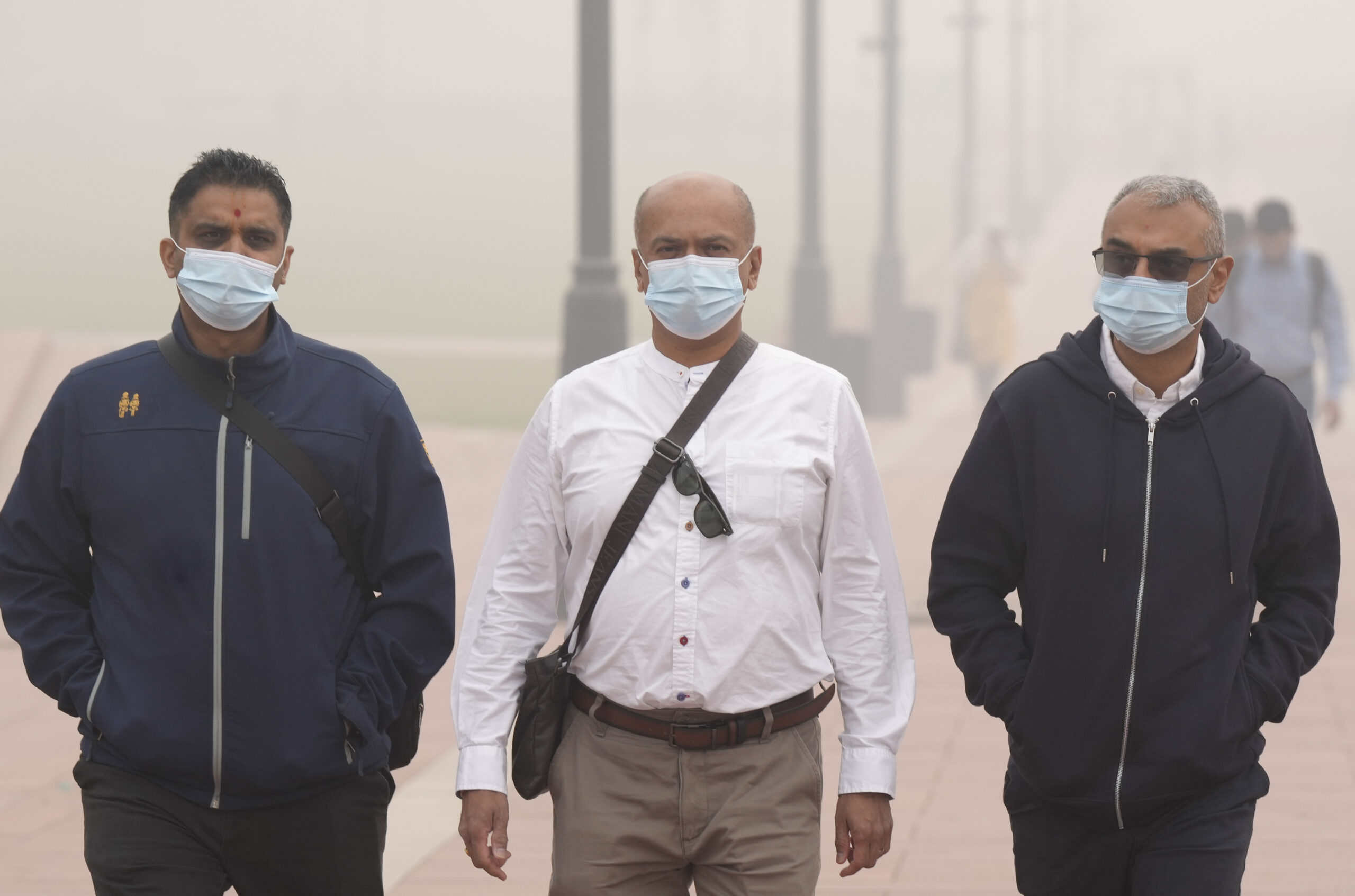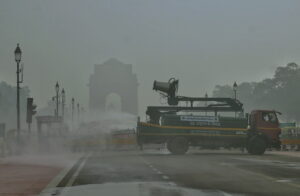- Monday, November 18, 2024
The Supreme Court said there was a delay in the implementation of preventive measures to fight air pollution and will not allow the scaling down of these measures without its permission

By: Shajil Kumar
THE SUPREME COURT on Monday questioned the Delhi government over delay in implementation of stricter anti-pollution measures under GRAP-4, and said it will not allow scaling down of the preventive measures without its prior permission.
A bench of Justices Abhay S Oka and Augustine George Masih pointed out that there was a delay in implementation of preventive measures under stage 4 of the Graded Response Action Plan (GRAP) even after the Air Quality Index (AQI) touched alarming levels in the national capital.
At the outset, the counsel for the Delhi government informed the bench that stage 4 of GRAP has been implemented from Monday and heavy vehicles have been banned from entering the national capital.
“The moment the AQI reaches between 300 and 400, stage 4 has to be invoked. How can you take risk in these matters by delaying applicability of stage 4 of GRAP,” the bench told the counsel.
It told the state government that the court wants to know what steps it has taken to curb the alarming rise of pollution level.
“We won’t allow scaling down of preventive measures under stage 4 even if AQI goes below 450. Stage 4 will continue till court permits,” the bench said, adding it will hear the matter in detail at the end of the day’s work.
Trucks entry banned
On Sunday, the CAQM announced stricter pollution control measures for the Delhi-NCR under GRAP-4, effective from 8 am on Monday, including a ban on truck entry and a temporary halt on construction at public projects.

The Commission for Air Quality Management (CAQM) issued the order as Delhi’s Air Quality Index (AQI) worsened, reaching 441 at 4 pm and rising to 457 by 7 pm due to unfavourable weather conditions.
According to the order, no trucks would be allowed into Delhi except for those carrying essential items or using clean fuel (LNG/CNG/BS-VI diesel/electric).
Non-essential light commercial vehicles registered outside Delhi will also be prohibited, except for EVs and CNG and BS-VI diesel ones.
The CAQM recommended that offices in the National Capital Region (NCR) work at 50 per cent capacity, with the rest working from home.
The Delhi government asked all schools to discontinue physical classes for all students, except those in classes 10 and 12, from Monday.
On November 14, the top court had agreed to urgently list the plea after it was told that Delhi should not become the most polluted city in the world due to the rising pollution.
It had earlier said the right to live in a pollution-free atmosphere was a fundamental right of every citizen, protected by Article 21 of the Constitution.
The apex court is hearing a plea seeking directions to curb air pollution in the national capital and adjoining areas.
Air quality worsens
Delhi’s air quality worsened to the ‘severe plus’ category on Monday with the city recording an AQI of 484.
The dense toxic smog caused visibility to drop sharply in the morning.
According to officials, visibility at Safdarjung airport was 150 metres.
Delhi’s AQI stood at 484, the worst this season, at 8 am, according to the Central Pollution Control Board (CPCB).
The AQI was 441 at 4 pm on Sunday and rose to 457 by 7 pm due to unfavourable weather conditions
An AQI of 400 or higher is deemed ‘severe’ and it can have an adverse effect on both healthy individuals and people who already have medical conditions.
First implemented in 2017, the GRAP is a set of anti-air pollution measures followed in the capital and its vicinity according to the severity of the situation.
It classifies the air quality in the Delhi-NCR under four different stages: Stage 1 – ‘poor’ (AQI 201-300), Stage 2 – ‘very poor’ (AQI 301-400), Stage 3 – ‘severe’ (AQI 401-450) and Stage 4 – ‘severe plus’ (AQI above 450).
Delhi recorded a minimum temperature of 16.2 degrees Celsius, 3.9 degrees above normal. The maximum temperature is expected to settle at 27 degrees Celsius, according to the India Meteorological Department (IMD).
Flights diverted
Eleven flights were diverted and many flights were delayed at the Delhi airport on Monday due to bad weather conditions in the national capital, according to an official.
The official said 10 flights were diverted to Jaipur and one to Dehradun.
The national capital is grappling with high pollution levels that has also resulted in lower visibility levels in various parts of the city.
The official said some of the pilots were not trained for CAT III operations due to which flights had to be diverted.
Broadly, CAT III trained pilots are allowed to take off or land planes at very low visibility conditions.
“Low visibility procedures are in progress at Delhi airport. All flight operations are at present normal,” Delhi International Airport Ltd (DIAL) said in a post on X early morning on Monday.
DIAL operates the Indira Gandhi International Airport, which handles around 1,400 flight movements daily.
It also advised passengers to contact the airlines concerned for updated flight information. (PTI)